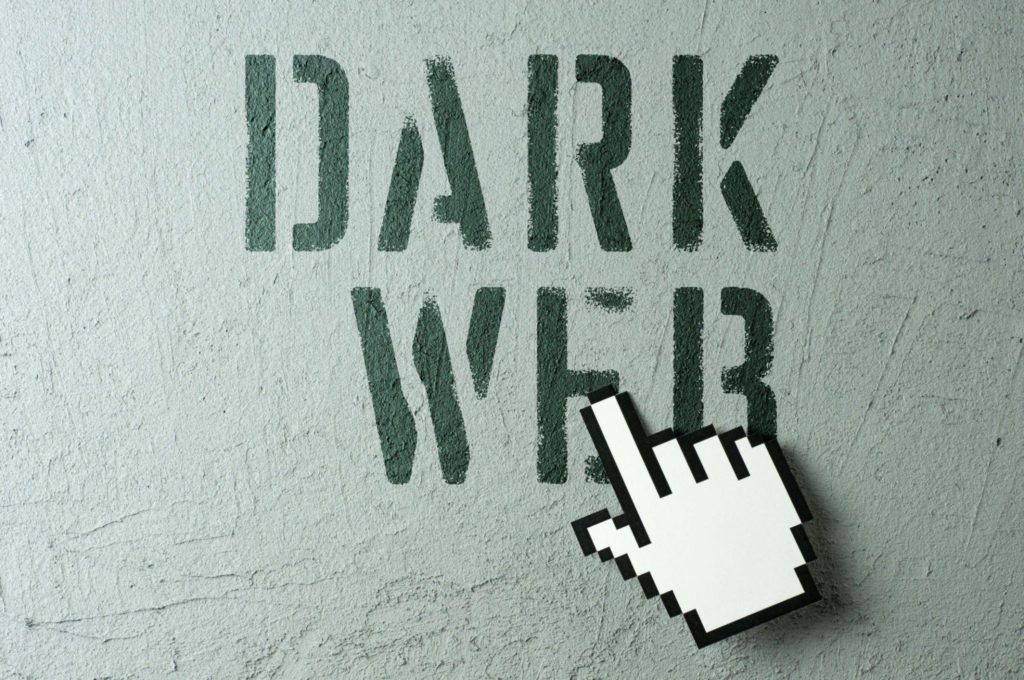In 2013, Ross Ulbricht, the mastermind of Silk Road, the most sophisticated and largest online black market for illegal drugs to date, was arrested by federal officials. During its nearly three-year run, Silk Road enabled approximately $214 million worth of transactions, with Bitcoin serving as the means of exchange.
The site operated on a hidden part of the internet called the dark web, where users can buy and sell anything anonymously, with no trail leading back to them.
Despite Ulbricht’s efforts to conceal his identity and evade authorities, his empire ultimately came crashing down due to his own mistakes, coupled with the infiltration of Silk Road by Department of Homeland Security and DEA agents.
This article explores the origins of Ross Ulbricht, the creation and operations of Silk Road, and the impact the entire incident had on the world. Let’s dive in…
Table of Contents
Origins of Ross Ulbricht
Ross Ulbricht was born on March 27, 1984, in Austin, Texas. He grew up as an easy-going hipster, but also as a serious student. He scored 1460 on his SATs and snagged a full ride to the University of Texas at Dallas, where he studied physics. Ross then won another full scholarship for a Master’s at Penn State in Materials Science and Engineering.
At Penn State, he evolved into a hardcore libertarian, immersing himself in that political philosophy, one which advocates individualism and minimal state involvement in people’s lives. He also became a fan and follower of libertarian economist Ludwig von Mises, a staunch opponent of government interference in the economy.

Creation of Silk Road
In January 2011, Ross created Silk Road, the largest and most sophisticated online market for illegal drugs in history. His vision was to create a modern-day marketplace where people could buy anything anonymously, with no trail whatsoever leading back to them.
Ulbricht initially made the site by teaching himself how to code, but when he needed more help, he reached out on a bitcoin community forum, looking for the best and brightest IT pro in the bitcoin community.
He pitched the position as Lead Developer in a venture-backed bitcoin startup company. Ross also received coding assistance from a friend of his from undergrad at Texas, Richard Bates.

To access Silk Road, users needed software known as Tor (commonly referred to as “The Tor Browser”), a web browser initially developed by the U.S. Navy as a way of communicating privately over the internet. Silk Road’s address used a bunch of random numbers and letters that ended with dot onion (.onion), the core domain extension for the dark web.
Silk Road’s Operations
Silk Road grew quickly, becoming a marketplace for all kinds of drugs, including weed, cocaine, LSD, ecstasy, and heroin. To limit scams, there was a rating system for sellers, similar to Amazon reviews.
The drugs arrived by mail with fake return addresses, slipped inside CD and DVD cases, or little ripples of cardboard. The packages had printed mailing labels rather than handwritten ones to look like they came from a legitimate business.
In two short years, Silk Road grew to more than 100,000 users with sales of nearly $214 million, the largest and most sophisticated online market for illegal drugs in history.
It not only attracted thousands of drug dealers and buyers, but also the U.S. government. This included politicians like Senator Chuck Schumer, who called for the site to be shut down over serious concerns about the drug sales and the possibility of a terrorist organization buying something from Silk Road to actually harm Americans.
The Infiltration of Silk Road
Despite calls for a Silk Road shutdown, the Feds were left scratching their heads as they still had no clue who the mastermind was behind the operation. Who was this Dread Pirates Roberts? Who was captain of the ship?
Indeed, as time wore on, it actually became somewhat of a competition amongst the various government agencies to be the one to finally identify the Silk Road mastermind.
The first screw started to turn when Department of Homeland Security agent Jared Der-Yeghiayan posed as a buyer and made a total of 52 undercover purchases on the site. He also seized thousands of packages, linked certain sales back to their source, and arrested several people along the way.
His biggest get, however, came when he tracked down a an actual employee, a moderator on Silk Road’s user forums called “Cirrus.” Jared forced her to hand over her account and then pretended to be her in order to really make some progress on the case. Posing as Cirrus, he received assignments directly from Ulbricht. The deep infiltration was finally underway.
Ulbricht’s Mistakes
As the government slowly tightened the noose on Ulbricht, the series of mistakes he made all along the way started to catch up with him. One of the earliest (and biggest) mistakes he made was leaving a trail of digital breadcrumbs that could be traced back to him.
For example, way back when he first solicited help from the Bitcoin community for his “startup company”, he stated that anyone interested should contact him via email. Unfortunately for him, he published his own personal email for this process. That first crucial error, nearly right out the gate, would later come back to haunt him.
Another mistake Ulbricht made was not keeping his personal and professional lives separate. He confided in both his girlfriend (Julia Vie) and aforementioned college friend (Richard Bates) about his involvement with Silk Road, which put each of them in a very difficult position. One day, he even showed Julia the psychedelic mushrooms he was growing and selling as a starter product on the website.
Ulbricht’s decision to use the Tor network to hide Silk Road’s location also proved to be a mistake. While Tor provided anonymity, it also attracted the attention of law enforcement agencies, who viewed it as a haven for criminal activity. In addition, Ross also used his personal laptop to run the site, which made it easier for authorities to track him down.
Finally, Ulbricht’s decision to appoint a right-hand man, known as Variety Jones, also proved to be a mistake. While Variety Jones provided valuable insights into the security of the site, he also encouraged Ulbricht to expand Silk Road and take on more risks. Selling psychedelic mushrooms and weed was one thing, but expanding into cocaine, LSD, ecstasy, and heroin brought an overwhelming amount of unwanted attention to Silk Road.
Ross’s strong libertarian beliefs also played a role in his downfall. His belief that individuals should have the right to buy and sell whatever they wanted without government interference led him to create a marketplace for illegal drugs and other illegal goods, which put him in direct conflict with the law.
At one point Ulbricht extended this into the right of self-defense, when guns started to appear on Silk Road. He soon realized, however, that he didn’t need the added controversy and soon took weapons off the site.
The Strange Saga of Carl Force and Silk Road
In addition to the Department of Homeland Security, the DEA (Drug Enforcement Agency) was also investigating Silk Road as part of a task force in Baltimore. DEA agent Carl Force, using the username “Nob” , posed as a drug dealer who smuggled millions of dollars worth of cocaine and heroin into the U.S. every year.
Carl found himself on friendly terms with Ulbricht, who had no idea he was speaking with a DEA agent. In a bizarre turn of events, however, agent Force attempted to extort money from Ulbricht by threatening to reveal his identity.
Adding to the extensive collateral damage from Silk Road, Carl was eventually caught, convicted on extortion, money laundering, and obstruction of justice, and sentenced to 78 months in prison.
The Arrest and Trial of Ross Ulbricht
The FBI eventually caught up with Ulbricht himself as well, arresting him in a San Francisco public library on Oct. 1, 2013. They found a journal on Ross’s computer stating he wanted “to create a website where people could buy anything anonymously, with no trail whatsoever that could lead back to them.”
During the trial, prosecutors presented digital evidence that tied Ulbricht to Silk Road, including chat logs, server data, and journal entries. They also presented evidence of Ulbricht’s attempts to hire hitmen to kill individuals he believed were threatening Silk Road’s operations.
In another personal journal disclosed by prosecutors, Ulbricht wrote, “Silk Road is going to become a phenomenon, and at least one person will tell me about it, unknowing that I was its creator.” That served as yet another marker for the egomaniacal mindset Ross clearly held.
In an effort to combat the flurry of evidence against him, Ulbricht’s defense team argued that Ross was not the sole operator of Silk Road, that he handed control of the site over to others. They also argued the evidence against Ulbricht was circumstantial, and that the government had violated his Fourth Amendment rights by conducting warrantless searches of his laptop and other devices.
Despite the defense’s arguments, a jury found Ulbricht guilty on all counts in February 2015. He was convicted of money laundering, computer hacking, and conspiracy to traffic narcotics, and was sentenced to life in prison without possibility of parole.
Silk Road’s Impact
Silk Road had a significant impact on the world of online marketplaces and the dark web. The site’s success opened the door for other similar marketplaces to emerge, offering a wide range of illegal goods and services.
One of the most significant impacts of Silk Road was the rise of Bitcoin as a preferred currency for online transactions. The site’s use of Bitcoin for payments helped to legitimize the cryptocurrency and increase its value. It also made it easier for people to make anonymous transactions, which was a key feature of Silk Road’s success.
Despite its “success”, Silk Road truly had a deep, negative impact on society. The site made it easier for people to access illegal drugs and other illegal goods, which led to an increase in drug-related crimes and deaths. The site also facilitated money laundering and other illegal activities, negatively affecting the global economy.
The impact of Silk Road on law enforcement was also significant. The site’s use of Tor and other technologies made it difficult for law enforcement to track down the site’s operators and users. It highlighted the potential dangers of anonymous online marketplaces and the challenges faced by law enforcement in tracking down criminals operating on the dark web.
However, the site’s eventual takedown by the FBI and other law enforcement agencies demonstrated that even the most sophisticated dark web marketplaces could be shut down.
The case against Ulbricht was significant not only for its size and scope but also for the implications it had on the future of online marketplaces and the use of cryptocurrencies like Bitcoin. It also shone a light on the importance for law enforcement to develop new tools and strategies to combat online crime.
Overall, Silk Road had a significant impact on the world of online marketplaces and the dark web. While in a way it helped to legitimize Bitcoin and other cryptocurrencies, it also facilitated illegal activities and left a deep, negative mark on society.
We can all be grateful, however, that in the end, law enforcement agencies were able to take it down, demonstrating that even the most sophisticated dark web marketplaces can be brought to justice.
- Ross Ulbricht: The True Story of a Dark Web Drug Lord - February 27, 2026
- VPN on Xbox: Enhance Gaming Experience and Security - February 27, 2026
- Remote ID: Essential Guide for Modern Drone Operations - February 27, 2026











3 thoughts on “Ross Ulbricht: The True Story of a Dark Web Drug Lord”